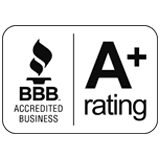Expunge a Felony (Indictable) Offense Sussex County NJ
Warren County Expungement Attorneys in Belvidere, NJ

Expunge Felony from my Record
Generally, there is a ten-year waiting period to expunge the conviction of a crime in New Jersey and a person can expunge only one indictable conviction and two disorderly persons offenses. N.J.S.A. 2C:52-2 controls the requirements and expungement procedure of the conviction of an indictable offense in New Jersey. However, in certain special scenarios you may be able to expunge a felony charge after five (5) years. As with all legal processes in New Jersey, the expungement of an indictable crime can be complicated and requires precise compliance with the applicable rules. Fortunately, the Sussex and Warren County expungement lawyers at the Tormey Law Firm are available to handle your expungement of an indictable crime at 973-755-1695.
Expunging a Felony/Indictable Offense in NJ: NJSA 2C:52-2(a)
Pursuant to N.J.S.A. 2C:52-2(a) a person who has been convicted of a crime under the laws of New Jersey, with certain exceptions, and who has not been convicted of any prior or subsequent crime, whether within this State or any other jurisdiction, and has not been convicted of a disorderly persons or petty disorderly persons offense on more than two occasions may, after the expiration of a period of 10 years from the date of his most recent conviction, payment of fine, satisfactory completion of probation or parole, or release from incarceration for that crime or for any disorderly persons or petty disorderly persons offense, whichever is later, present an expungement application to the Superior Court in the county in which the conviction for the crime was adjudged, which contains a duly verified petition as provided by law for the criminal conviction sought to be expunged, and may also contain additional duly verified petitions for no more than two convictions for any disorderly persons or petty disorderly persons offenses, praying that the conviction, or convictions if applicable, and all records and information pertaining thereto be expunged.
But there are certain exceptions to the ten-year waiting period. For example, a court may grant an expungement petition if less than ten years has expired from the satisfaction of a fine, but the ten-year time requirement is otherwise satisfied, and the court finds that the person substantially complied with any payment plan or could not do so due to compelling circumstances affecting his ability to satisfy the fine. Additionally, a court may grant an expungement if at least five years has expired from the date of conviction, payment of fine, satisfactory completion of probation or parole, or release from incarceration, whichever is later; the person has not been convicted of a crime, disorderly persons offense, or petty disorderly persons offense since the time of the conviction; and the court finds in its discretion that expungement is in the public interest, giving due consideration to the nature of the offense, and the applicant’s character and conduct since conviction. Additionally, the New Jersey expungement statutes further set fort that although subsequent convictions for no more than two disorderly or petty disorderly persons offenses shall not be an absolute bar to relief, the nature of those convictions and the circumstances surrounding them shall be considered by the court and may be a basis for denial of relief if they or either of them constitute a continuation of the type of unlawful activity embodied in the criminal conviction for which expungement is sought.
How does the expungement process work?
An expungement is essentially a motion filed in the Superior Court in the county in which you were charged, arrested, and/or convicted. First, we must request a certified disposition from the court showing what charges you had and how those charges were resolved. This must be a certified (stamped) copy that we attach as an exhibit to your expungement petition. Then, we must draft the expungement motion which includes a certification that the client must sign. Once the motion is drafted and the certification is signed, we can file the motion with the court. We must send copies of this motion, certified mail, to all the law enforcement agencies in New Jersey letting them know that we are applying to have your records expunged. These agencies include the local police, attorney general, etc. Then, we will receive a copy back from the court which shows that the motion was successfully filed. At this point, the court will set a hearing date for the expungement. Most expungements proceed “on the papers” so there is no need to appear at the hearing. As long as the prosecutor’s office does not object to the expungement, a Superior Court Judge will sign an order granting the motion to expunge your records. Once we receive this signed order from the court, we must again send certified copies of it to all the law enforcement agencies so that they then remove your records.
Note: The records are not destroyed. They are set aside so they no longer show up on background checks. The expungement process takes a minimum of 90 days but can take up to six (6) months or longer. It depends on the court and the county in which you are filing.
Certain Felony/Indictable Charges Can Never Be Expunged From Your Record
There are also certain convictions that cannot be expunged in New Jersey. These non-expungable offenses include: criminal homicide, except death by auto as specified; kidnapping; luring or enticing; human trafficking; sexual assault or aggravated sexual assault; aggravated criminal sexual contact; criminal sexual contact if the victim is a minor; criminal restraint if the victim is a minor and the offender is not the parent of the victim; false imprisonment; robbery; arson and related offenses; endangering the welfare of a child by engaging in sexual conduct which would impair or debauch the morals of the child, or causing the child other harm; photographing or filming a child in a prohibited sexual act; causing or permitting a child to engage in a prohibited sexual act; distributing, possessing with intent to distribute or using a file-sharing program to store items depicting the sexual exploitation or abuse of a child; possessing or viewing items depicting the sexual exploitation or abuse of a child; perjury; false swearing; knowingly promoting the prostitution of the actor’s child; terrorism; producing or possessing chemical weapons, biological agents or nuclear or radiological devices; and conspiracies or attempts to commit such crimes. Additionally, records of conviction pursuant to statutes repealed by the New Jersey Criminal Code for the crimes of murder, manslaughter, treason, anarchy, kidnapping, rape, forcible sodomy, arson, perjury, false swearing, robbery, embracery, or a conspiracy or any attempt to commit any of the foregoing, or aiding, assisting or concealing persons accused of the foregoing crimes, shall not be expunged. Moreover, records of conviction for any crime committed by a person holding any public office, position or employment, elective or appointive, under the government of this State or any agency or political subdivision thereof and any conspiracy or attempt to commit such a crime shall not be subject to expungement if the crime involved or touched such office, position or employment.
As for the expungement of convictions for drug related felonies, expungement shall be denied except where the crimes involve: marijuana, where the total quantity sold, distributed or possessed with intent to sell was 25 grams or less; hashish, where the total quantity sold, distributed or possessed with intent to sell was five grams or less; or any controlled dangerous substance provided that the conviction is of the third or fourth degree, where the court finds that expungement is consistent with the public interest, giving due consideration to the nature of the offense and the petitioner’s character and conduct since conviction. And in the case of a State licensed physician or podiatrist convicted of an offense involving drugs or alcohol or the unlicensed practice of medicine, the court shall notify the State Board of Medical Examiners upon receipt of a petition for expungement of the conviction.
Sussex County Expungement Lawyers
If you are seeking to expunge the conviction and records of the conviction of an indictable crime in Warren or Sussex County, contact the expungement attorneys at the Tormey Law Firm to start the process at 973-755-1695.











